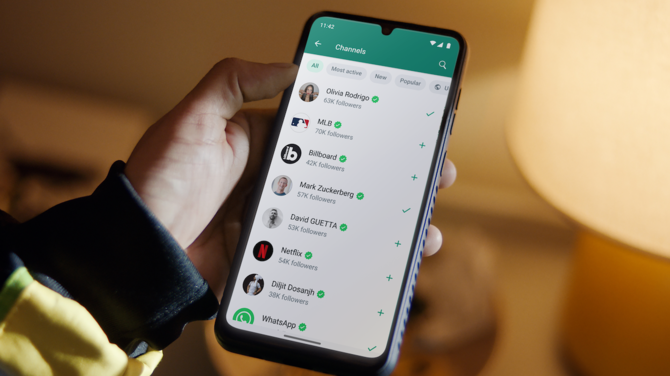DUBAI: WhatsApp users in Saudi Arabia and the UAE will soon be able to access a new feature on the platform called “Channels,” a one-way broadcast service that allows users to receive messages from favorite celebrities, sports teams, thought leaders, content creators and organizations.
Parent company Meta said in a blog post that it initially introduced Channels in June only in Colombia and Singapore, so that it could “build, learn and adapt the experience.” They are now starting to roll it out to more than 150 countries.
The feature, which gives admins the ability to send text, photos, videos, stickers and polls, will be available under an “Updates” tab, which is separate from normal WhatsApp chats.
“WhatsApp Channels aspires to be the most private broadcast service available, helping users receive updates from the organizations and people that are important to them in a reliable, safe and private way,” said Moon Baz, Meta’s creator partnerships lead for Africa, the Middle East and Turkiye.
In an attempt to maintain privacy, the phone numbers of admins and followers will not be visible in a channel. Admins can also choose to block screenshots and forwarding of messages from their channel, define who is eligible to follow their channel, and decide whether or not they want it to be discoverable in the directory.
A number of regional businesses, government entities, media outlets and creators have already activated the Channels feature, Meta said.
Travel content creator Adel Al-Adwani, one of the early adopters, said: “I’m thrilled to bring my community a step closer into my world through WhatsApp Channels.”
He added that he plans to use it to share travel tips, food experiences and “helpful facts, from premier lodging options to must-visit destinations.”
Olivia Rodrigo, David Guetta, Billboard, Major League Baseball and Netflix are among the celebrities and organizations that have already set up channels.
Meta said WhatsApp Channels is due to go live in Saudi Arabia and the UAE this week and will be gradually rolled out to all users in both countries in the coming days.













